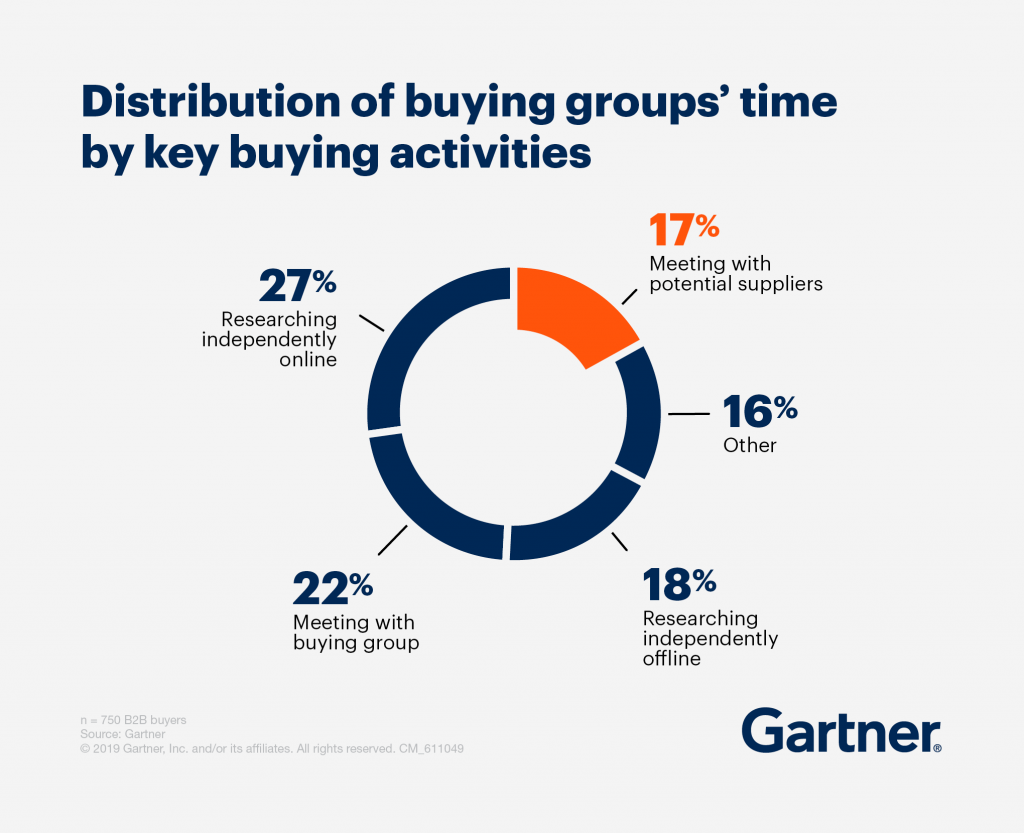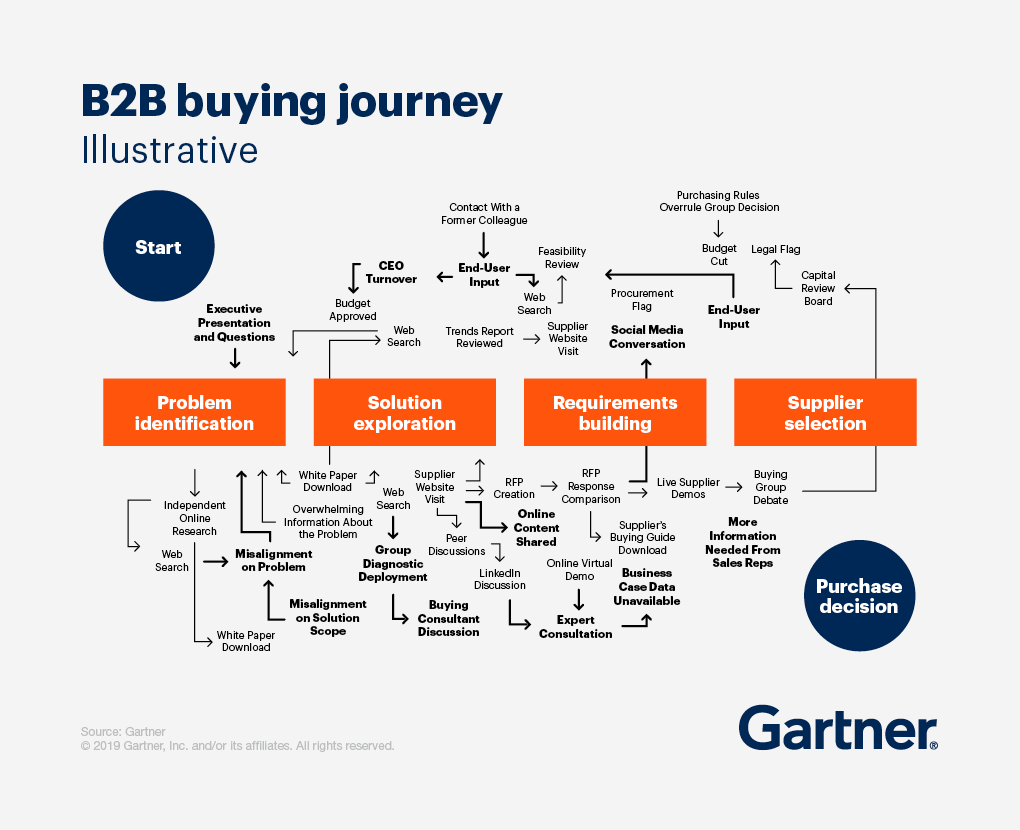Among the many assumptions that today’s business leaders make is that buyers buy and sellers sell. In their minds, there is a clear distinction between buying and selling. Within that paradigm, sellers “push” and buyers “pull,” and these transactions are linear, logical, predictable, and measurable. If that is indeed the case, why are companies struggling to sell? That struggle has now become harder and more complicated with the onset of the pandemic. CEOs and Founders across the globe are yet to acknowledge the paradigm shift on how buyers buy. In fact, Nick Mehta and Allison Pickens in their book “The Customer Success Economy” argue that every aspect of your business model needs a paradigm shift, not just sales, and marketing!
According to a study done in 2019 by Gartner, “when B2B buyers are considering a purchase‚ they spend only 17% of that time meeting with potential suppliers when buyers are comparing multiple suppliers‚ the amount of time spent with any sales rep maybe only 5% or 6%.” If buyers are spending so little time interfacing with sellers, what are they doing the rest of the time? Many who profess to market and sell rarely take the time to understand their buyer’s perspective, their buyer’s journey, or their buyer’s buying experience. In fact, 77% of the customers Gartner surveyed described their purchasing experience as very complicated or challenging to navigate.

Have you spoken to your existing customers or potential customers about their buying experience? How do you think they would rank you? Did you know that when customers obtained timely and tailored information, they were 2.8 times more likely to experience a high degree of purchase ease and three times more likely to buy a bigger deal with less regret? What strategies and tactics have you adopted to understand your customers buying journey, and more importantly, have you plugged the information gaps revealed by a recent content audit?
Let’s look at a typical B2B buying scenario from the perspective of the buyer. In most companies purchasing decisions related to complex solutions are no longer made by a single individual. According to Gartner, most businesses use a buying group involving six to 10 decision makers‚ each armed with four or five pieces of information they have gathered independently that they must deconflict with the group. Today’s buyers spend a considerable amount of time researching and evaluating potential solutions and vendors online and offline. They also consult with peers, analysts, and consultants before engaging with a handful of pre-selected vendors. How do you ensure that your product or solution is part of that rigorous process? Clearly, buyers are no longer uninformed, uneducated, unsophisticated consumers looking to be schooled and enlightened by savvy, sauvé and smooth-talking salespeople.
In our experience, buyers do not embark on a linear, logical, or predictable journeys that can be easily measured; they don’t make purchase decisions based on a sequential flow. Buyers frequently loop around and go back and forth:
- revisiting prior positions related to their definition of the problem, they are looking to solve
- their stated (or unstated) and evolving requirements
- the fit or suitability of various vendor solutions
- their budget constraints
- obtaining consensus and deconflicting the views and opinions of multiple decision-makers.

To easily navigate this convoluted and complicated buying process, buyers are looking for a buyer-facilitator, a trusted “sense-making” advisor, and not a pushy and persistent salesperson. Are your salespeople buyer-facilitators or “sense-making” advisors? Or have they commissioned salespeople incorrectly incentivized and measured to maximize their welfare over that of your customers?
Given that both Gartner and Forrester predict that by 2020, more than 80% of the buying process will occur without any direct human-to-human interaction, do you think your potential customers will still respond to a cold-call? In our opinion, you cannot develop an elevator pitch/script slick enough, nor can you find a salesperson savvy enough to deliver that pitch to a total stranger on a cold call! You need to rethink and re-evaluate how you market and sell – no longer can companies afford to spray and pray!









Add comment